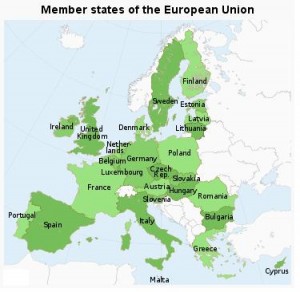Van Rompuy Takes Lead In Eurozone Crisis Stunt
By EurActiv
This week (5-11 September) will be marked by the absence of European Commission President José Manuel Barroso from Brussels and discrete diplomatic activity by Council President Herman Van Rompuy to deal with the eurozone crisis.
With the German Constitutional Court expected to deliver a ruling which could hamper future rescues of crisis-hit countries such as Greece, Barroso will travel this week to Australia, New Zealand and Singapore (5-9 September).

The official visits are taking place at a time when the European Central Bank, which is already split over its intervention in bond markets to protect Italy, is due to review that programme. Meanwhile, Greece will find out how successful it has been in convincing private investors to take part in a bond swap designed to reduce its €340 billion debt.
After arriving in Australia, Barroso insisted that eurozone policymakers were doing everything possible to resolve the crisis. “I want to be clear here. The European Union and the euro are strong and resilient. We are doing all it takes,” Reuters quoted him as saying today (5 September) after talks with Prime Minister Julia Gillard.
On Wednesday, the German constitutional court is expected to rule on suits claiming that Berlin is breaking national law and European treaties by contributing to multi-billion-euro bailouts of Greece, Ireland and Portugal.
Legal experts think the court is unlikely block to the contributions altogether. But it is expected to give the Bundestag – the German Parliament – a bigger say in approving them.
The Court ruling is far from the only obstacle standing in the way of reforming the European Financial Stability Facility (EFSF). The Finnish government is asking for collateral from Greece as a precondition of its approving a second bailout to save Athens from bankruptcy.
Helsinki wants Athens to deposit some €500 million into an escrow account with the Finnish state in return for receiving the roughly €1.4 billion that Helsinki is required to contribute to the €109 billion European aid package for Greece. Under such a scenario, other eurozone countries are likely to ask for collateral as well, potentially causing the bailout package to burst.
Van Rompuy is visiting Helsinki today, where he is expected to meet with Prime Minister Jyrki Katainen. Later in the day, he will be heading to Berlin to discuss the situation with German Chancellor Angela Merkel.
In the meantime, Greece has set a deadline of Friday afternoon for European banks to express their interest in its bond swap; the banks will be required to commit by mid-October.
Athens wants €135 billion of outstanding bonds to be swapped or rolled over, which translates to a high take-up rate of 90%, Reuters reported. Athens has warned that the whole scheme, and conceivably even its plan to receive a second international bailout, could be threatened if that target is not met.
But even if the debt swap is fully taken up, analysts think that combined with other planned measures, it will only produce a drop in the ratio of Greece’s debt to its gross domestic product to around 120 or 130% over the next few years, down from above 150% now. So another, more painful Greek debt restructuring may be inevitable further down the road.
